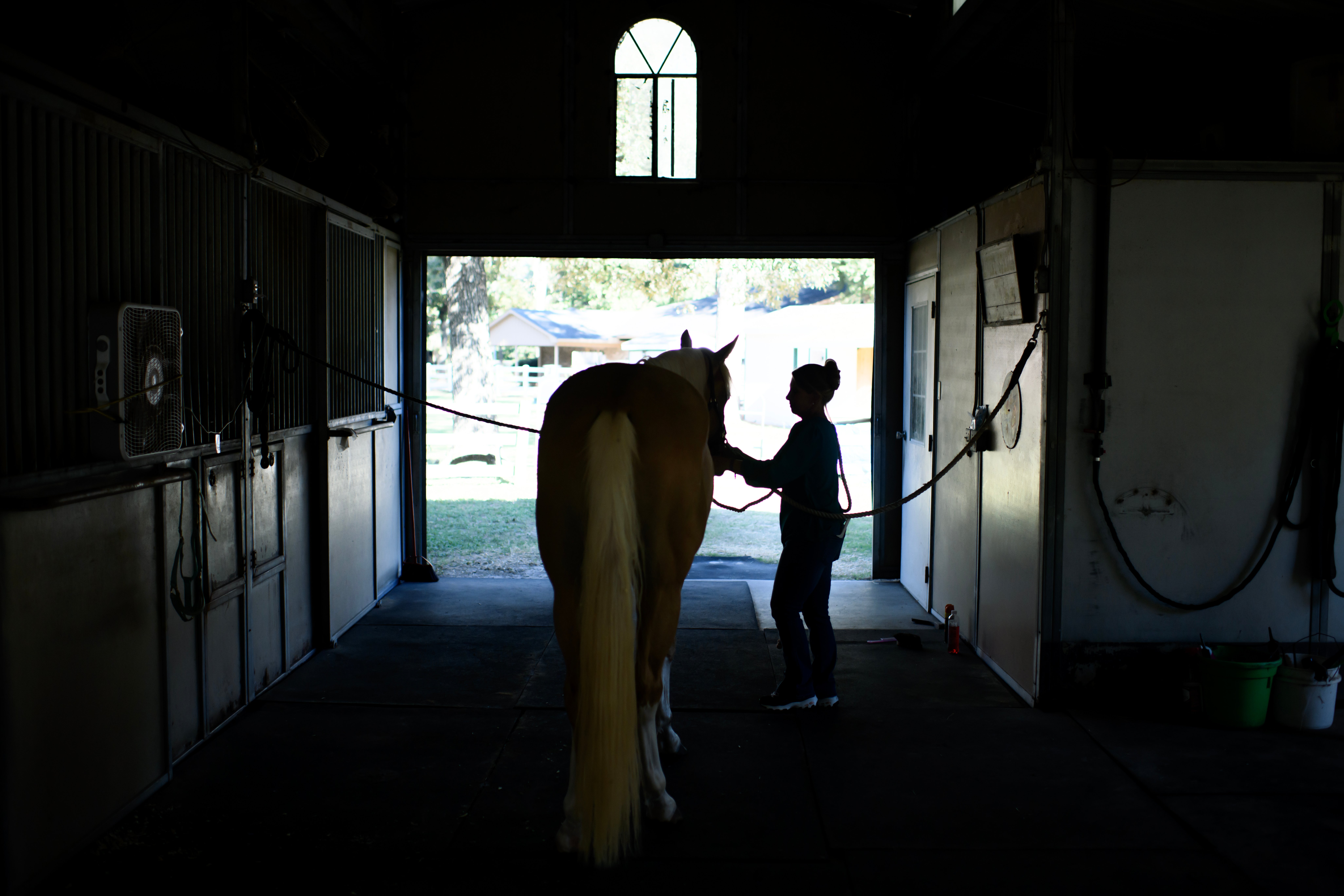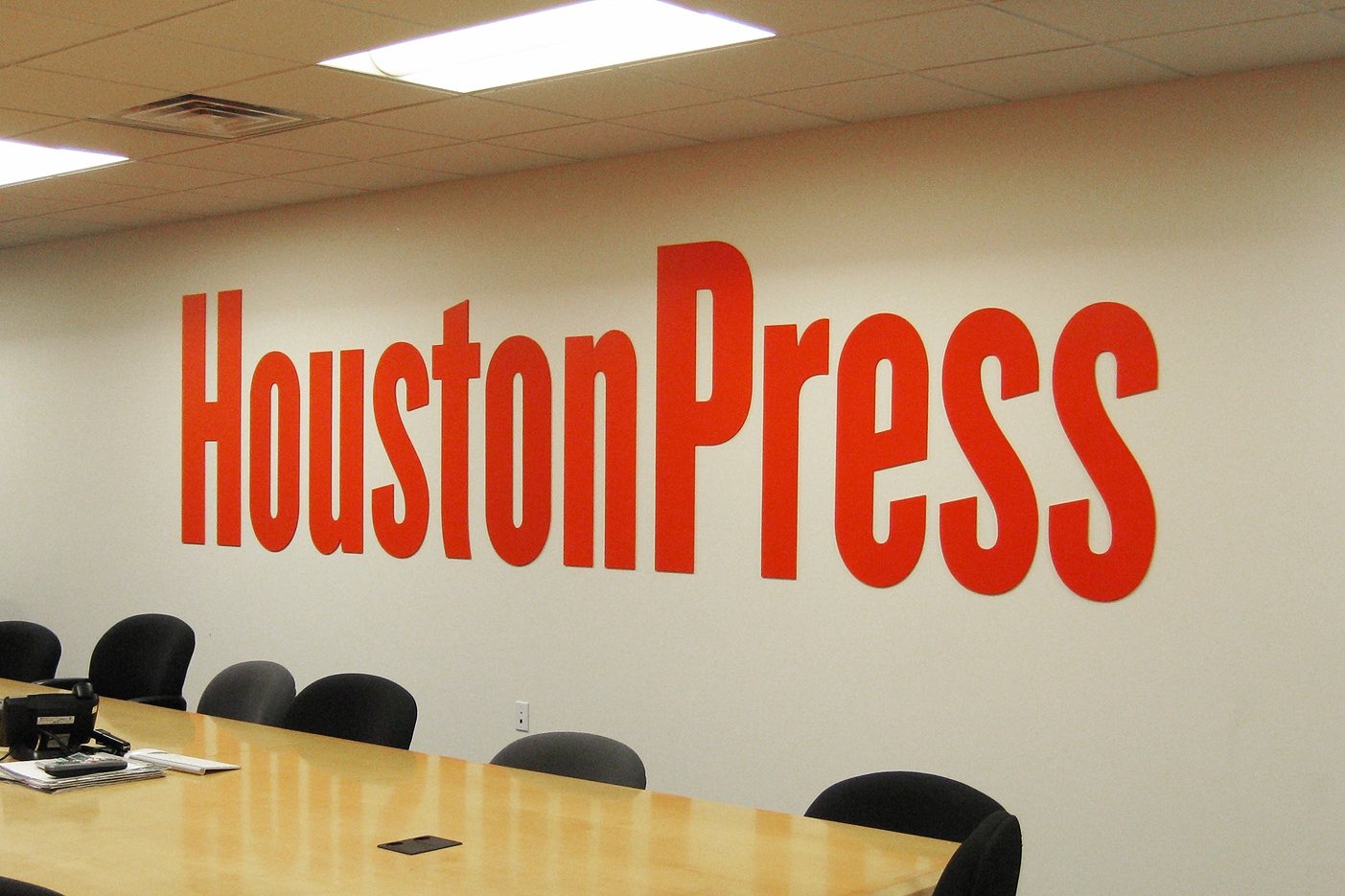
Requiem for an Alt-Weekly
The strange and sudden demise of the Houston Press.

Requiem for an Alt-Weekly
The strange and sudden demise of the Houston Press.
On the afternoon of Friday, November 3, hundreds of thousands of cheering, flag-waving baseball fans lined the streets of downtown Houston to catch a glimpse of the newly crowned World Series champions, the Houston Astros, as they rode firetrucks through a shower of orange and blue confetti. Many businesses closed early for the day to allow their employees to watch the parade; Houston ISD canceled classes.
Not in attendance was the small editorial staff of the Houston Press, the city’s 28-year-old weekly newspaper. That morning they had received an email summoning them to a 3 p.m. all-hands meeting with the Press’ publisher, Stuart Folb, and its editor, Margaret Downing. Some had managed to sneak out of the paper’s Midtown office to briefly watch the parade before hustling back in time for the meeting.
Staff writers Dianna Wray and Meagan Flynn arrived at the conference room in a sweat after running some 15 blocks from the parade route. They found the rest of the staff already sitting around a table loaded down with pizza boxes and six-packs of beer. Perhaps it was an office party to celebrate the Astros, Wray thought. Flynn, who had been dreading the meeting since receiving the email, was momentarily relieved. “There was that glimmer of hope that maybe this is something great,” she remembered. “And then we saw Margaret’s face.”
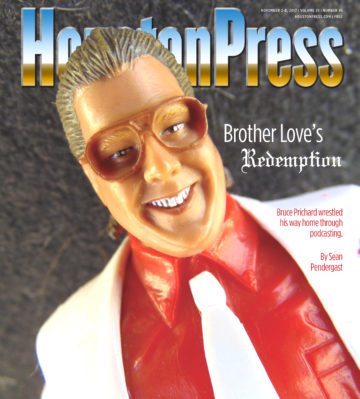
Folb, the publisher, began the meeting by announcing that the Press had sustained severe advertising losses due to Hurricane Harvey and would be ceasing print publication immediately. Visibly emotional, he then informed the staff that everyone in the room other than himself and Downing — a total of eight full-time and two part-time editorial employees — was being laid off. This would be their final day of work.
As the staff sat in shocked silence, absorbing the news, Wray reached over to the pile of beer, grabbed a can of 8th Wonder Weisstheimer and loudly cracked it open.
“Well, fuck,” she said before taking a gulp.
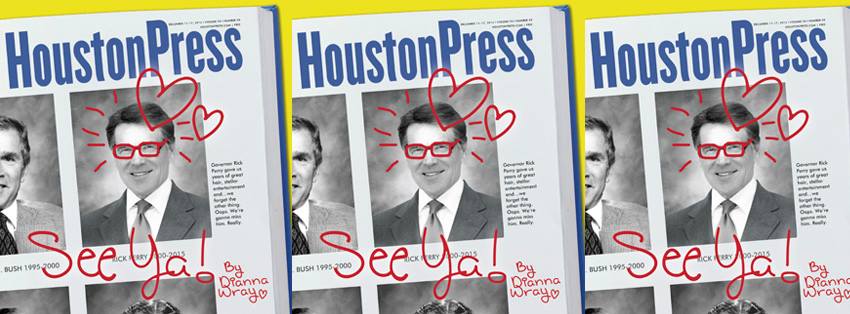
The Houston Press was founded in 1989 by John Wilburn, the former managing editor of the Dallas Morning News’ Sunday magazine, and Chris Hearne, the former publisher of Austin’s now-defunct Third Coast Magazine, with financial backing from Houston real estate developer Neil Morgan. At the time, Houston was one of the few large American cities without a so-called alternative weekly — the format pioneered in the 1950s by New York’s Village Voice and generally characterized by an irreverent attitude, robust arts and music coverage and crusading investigative journalism.
The Press’ first issue featured a 10,000-word cover story on the Houston mayoral election written by Tim Fleck, whose reporting quickly won the paper a reputation for incisive political coverage. Following the business model of other alt-weeklies, the Press gave its issues away for free at heavily trafficked locations, making money solely from advertising revenue.
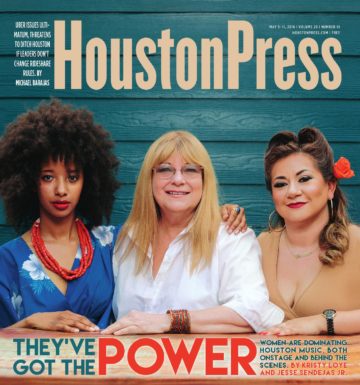
“It was ubiquitous in places where people went, especially places they went to consume music, alcohol and tobacco,” Wilburn said. “We used to have stacks of them on cigarette machines.”
By 1993 the paper was struggling financially. Wilburn recalled occasionally deferring his own paychecks so that other staff members could be paid. Later that year he resigned over disagreements with the owner, Morgan, who then sold the paper to the New Times chain of alt-weeklies, which included the Phoenix New Times, the Miami New Times, the Dallas Observer and Denver’s Westword.
Under Wilburn, the paper had refused to run the kind of racy sex ads that were a staple of many alt-weeklies, because he worried they would scare away mainstream advertisers. The New Times had no such scruples; the Press’ back pages soon filled with lurid ads for strip clubs and phone sex lines.
Flush with cash from this new advertising and buoyed by the dot-com boom of the late ’90s and early 2000s, the Press expanded its staff and page count. Margaret Downing was hired as editor-in-chief in 1998 and recruited a series of ambitious young journalists, many of whom would go on to top national publications. By 1999 the newsroom comprised 23 editors and reporters, and the paper had grown to an average of 152 pages; that year’s Best of Houston issue was 312 pages.
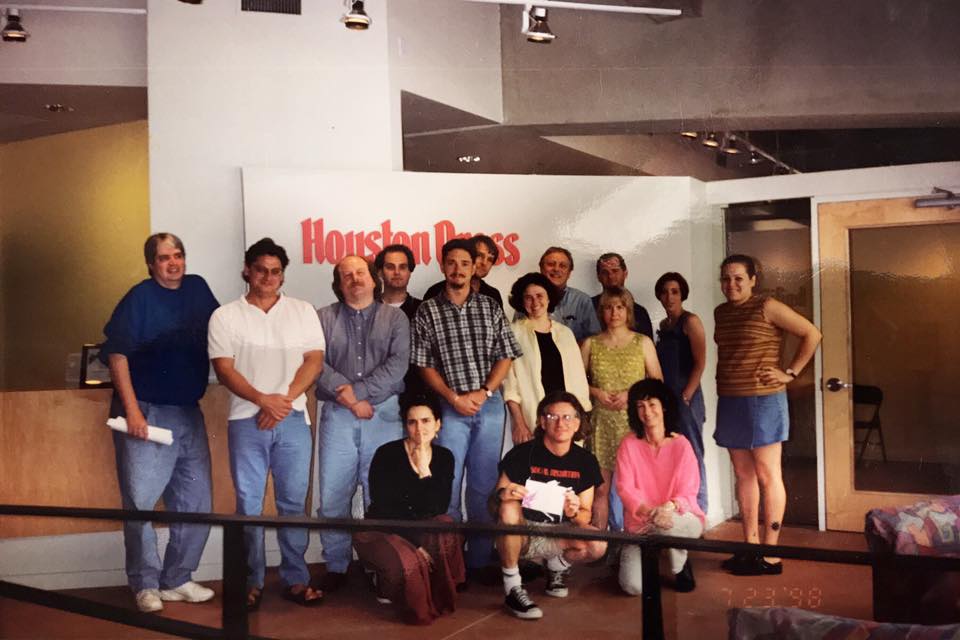
The Press established a reputation for punching above its weight. A 1998 exposé by Bob Burtman about the wrongful murder conviction of Roy Criner led to Criner winning a pardon. Food writer and three-time James Beard Award winner Robb Walsh helped put Houston on the map as a world-class culinary destination with quirky, deeply researched features like “Sex, Death and Oysters.” Music writer John Nova Lomax chronicled the city’s underground as well as its big names, winning the 2008 ASCAP Deems Taylor Award for his profile of troubled country music star Doug Supernaw. (Full disclosure: Lomax, Walsh, and Wilburn were former colleagues of mine at Houstonia magazine.)
“We need journalism more than ever, and alt-weeklies were an important voice.”
When I moved to Houston in 2004 to attend Rice University, the Press was still in its heyday, still an indispensable resource for anybody interested in the city’s cultural scene. Its music and arts listings were more comprehensive and reliable than those of the Chronicle, which often seemed painfully out of touch, and it had the best critics in the city. Weekly features like Hair Balls, a raunchy miscellany of weird Houston news, gleefully skewered sacred cows from City Hall to the energy industry to the Chronicle itself, whose stodgy conservatism the Press never tired of mocking.
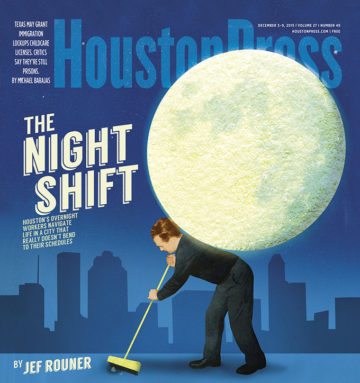
If the Chronicle was the king of local media, the Press was the court jester. It was the place you could read off-the-wall stories like “Radio Daze,” in which Lomax described spending 24 straight hours listening to Houston radio stations (fortified by caffeine pills, anti-nausea syrup and a fifth of vodka) or “Dark Water,” in which staff writer Josh Harkinson and photographer Daniel Kramer spent two days paddling a canoe down Buffalo Bayou from the Galleria area to the Gulf of Mexico.
In the end, of course, the dot-com boom proved at best a mixed blessing for the journalism industry, as Craigslist siphoned off classified advertising revenue and readers became accustomed to reading stories for free online. In 2004, to compete with Craigslist, the New Times launched the online classified ad site Backpage.com. After Craigslist eliminated its “Adult Services” section in 2010, many of those advertisements migrated to Backpage, providing a crucial revenue source for the New Times, which was now doing business as Village Voice Media Holdings, LLC. (It had purchased the Village Voice and its five sister papers in 2006).
Backpage soon became the “web’s leading destination for prostitution ads,” according to AdWeek, bringing in an estimated $30 million a year, which accounted for one-seventh of the company’s revenue. Beset by lawsuits and hammered by women’s rights groups, Village Voice Media spun off Backpage in 2012. Actually, it would be more accurate to say that Backpage spun off Village Voice Media. Michael Lacey and James Larkin, the company’s top executives, stayed at Backpage, while a coalition of lower-level executives, backed by private equity investors, formed a new company called Voice Media Group to purchase the company’s 12 alt-weeklies, including the Press.
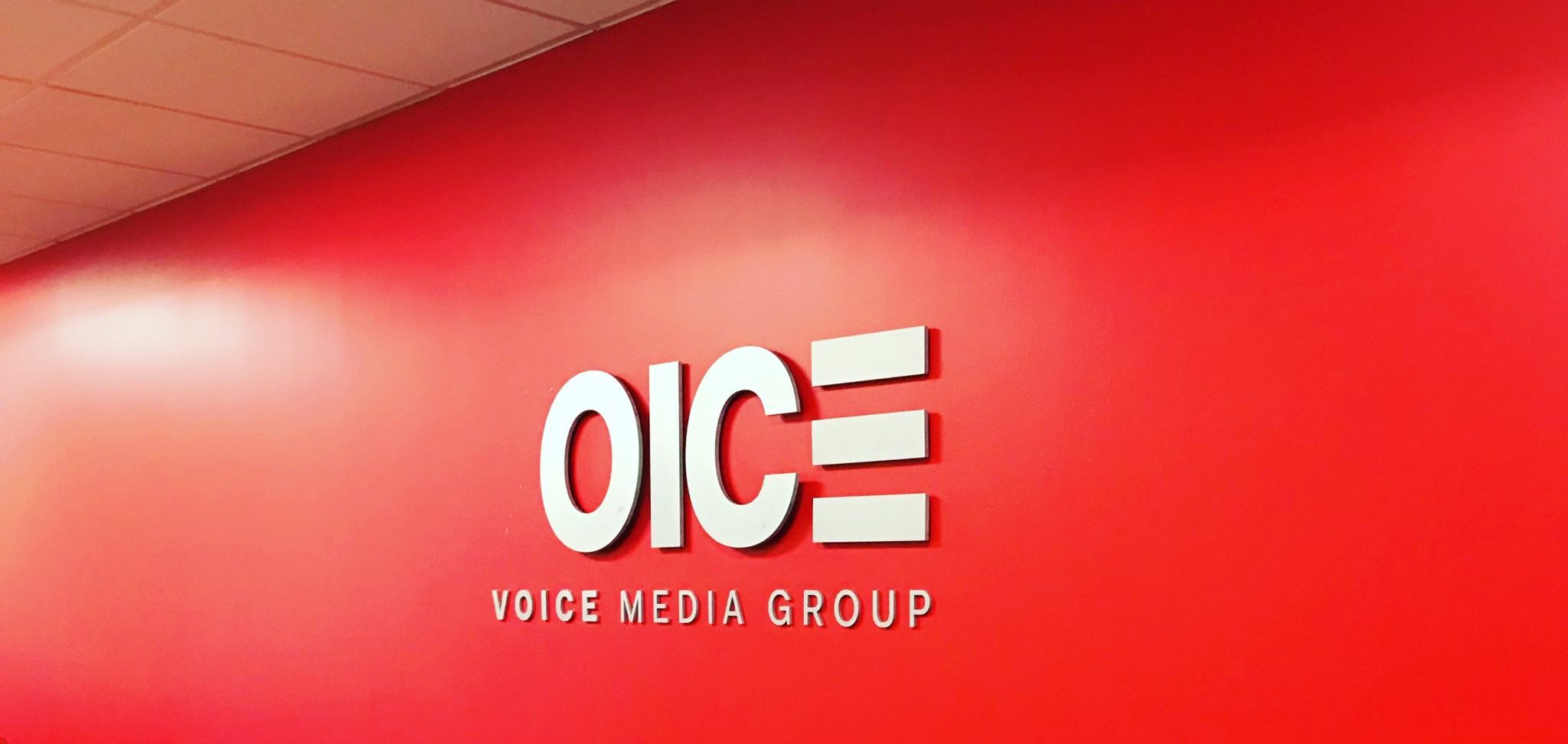
Like the rest of the journalism industry, the Press had been dealing with advertising declines and staff layoffs for years. But under the management of the newly reconstituted Voice Media Group, it entered what appears in retrospect to be its death spiral. In 2013 the Press moved from its spacious downtown office to a smaller space in Midtown. Its print edition became slimmer and slimmer. Editorial positions were consolidated or went unfilled.
Still, the Press continued racking up accolades. In 2014, staff writer Craig Malisow won an award from the PEN Center USA — a top literary honor rarely given to journalists — for his story about a Texas A&M professor who committed suicide after being blackmailed by a stranger he met online. And the paper remained a linchpin of the city’s cultural scene, hosting annual events like the Houston Press Theater Awards, Artopia and the Iron Fork Chef Competition.

Hurricane Harvey proved the paper’s Waterloo. The small staff worked 18-hour days throughout the storm, doubling their output and achieving record web traffic, but it wasn’t enough to make up for the loss of print advertising from restaurants and arts groups devastated by flooding. “Harvey was, for us, catastrophic,” said Downing. “Thousands of dollar less in ad revenue, all of a sudden, that we were counting on.”
In mid-October, the Voice Media Group informed her that it planned to shut down the Press, claiming it couldn’t find a buyer. When the Voice Media Group put LA Weekly up for sale in January, it issued a press release; no similar announcement was made about the Press, leading some former staffers to question how hard it tried to find a buyer. Interview requests to the Voice Media Group corporate office in Denver were not answered.
Downing and publisher Stuart Folb persuaded the company to give the paper a reprieve by allowing it to live on as a web-only publication, with Downing as the sole editorial employee managing a team of freelance writers. In a note to readers, Downing wrote that the Press would still present “the cutting edge journalism that readers aren’t likely to get elsewhere.”
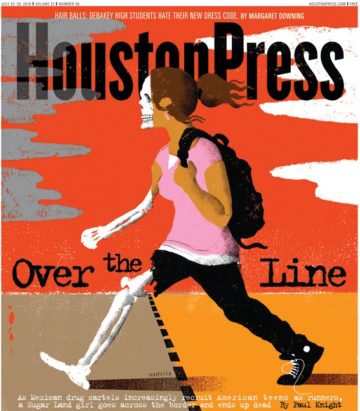
But during a recent interview at the Press’ eerily quiet office, Downing seemed less confident about the success of this experiment in single-employee journalism. “Both sides, myself and corporate, know that this may end at any point, either because I say it’s not [working], or they say it’s not working for them,” she told me.
Walking out after the interview, I picked up a copy of the Press’ final edition, dated November 2-8, from a stack by the door. Toward the front of the thin, 32-page issue was a list of all the paper’s award-winners and finalists from the past year, including the Association of Alternative Newsmedia’s first place award for longform news story, given to former Press managing editor Michael Barajas (now an Observer staff writer) for his 2016 investigation into how low-level offenders are routinely jailed in Houston for inability to pay parking fines.
“We wrote great stuff, won all these awards,” Downing told me, with a sardonic laugh. “But it didn’t matter. So we’ll just see. We are still here, we’re trying to get it started. But if I feel at a certain point that it just won’t work, then, you know, I won’t be here either.”
“Harvey was, for us, catastrophic. Thousands of dollar less in ad revenue, all of a sudden, that we were counting on.”
Only a few weeks after the Press massacre, LA Weekly suffered a similar fate. The Los Angeles alt-weekly had in fact managed to find a buyer — a mysterious outfit called Semanal Media that turned out to be a consortium of Southern California investors. On November 29, the day the deal was officially finalized, Semanal Media laid off all but one editorial staff member.
The Press is hardly the only media outlet in Texas facing financial pressure. Last year, Emmis Communications sold Texas Monthly to a Houston private equity group founded by Paul Hobby. In October, Cox Media Group put the Austin American-Statesman up for sale after 41 years. Arts coverage — a traditional strength of alt-weeklies — has been especially hard hit, with the Statesman recently laying off its single arts writer and the Chronicle parting ways with its classical music critic. (The Chronicle and the Dallas Morning News have now partnered with a San Francisco-based nonprofit to support their classical music coverage.)
Many of the laid-off Press employees expressed concern about stories falling through the cracks in what is now a one-newspaper town. “I think the Chronicle does a wonderful job,” said former managing editor Zach Despart. “I think Houston Public Media does a really good job. But the Houston Press had a really unique kind of fit.”
Former staff writer Dianna Wray said the paper filled a crucial niche in the Houston media ecosystem. “We need journalism more than ever, and alt-weeklies were an important voice. That was where you talked about the things that maybe you didn’t talk about in the big dailies or the magazines, the place you could have a different point of view. I don’t think it will ever be the same. Maybe it will come back in some other form, but it will never be what it was.”
Editor’s Note: An earlier version of this story stated that in 2010 and 2012, the New Times was doing business as the Voice Media Group. In fact, its name at that time was Village Voice Media Holdings, LLC. The company also purchased the Village Voice and its sister papers in 2006, not 2005.


